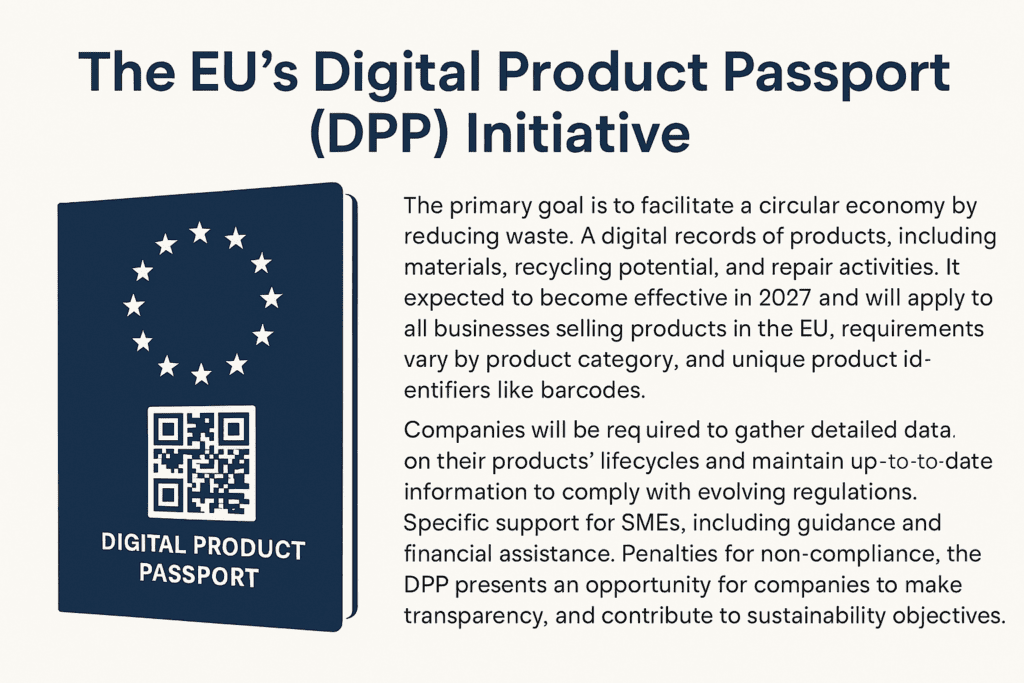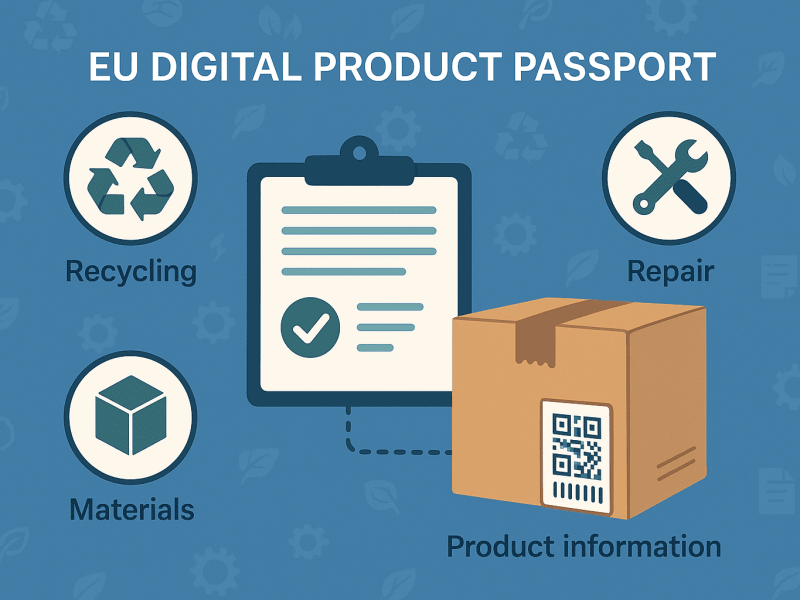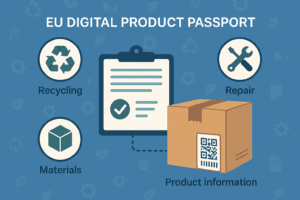The EU’s Digital Product Passport (DPP) initiative is a major step forward in creating a more sustainable and circular economy. With the EU’s environmental goals in mind, the DPP is designed to make sure that products are not just made, but also easily reused, recycled, or repaired. By 2027, all businesses selling products in the EU will need to follow these new rules, which involve creating a digital record for each product that includes key details like materials, how it can be recycled, and repair options.
The main goal of the DPP is to cut down on waste by making it easier to track the entire life cycle of a product. Every product will have a digital passport, which can be accessed using a QR code or barcode. This passport will contain important info, like what the product is made of, whether it can be recycled, and if it can be repaired. For businesses, this means they’ll need to gather and update data about their products regularly, ensuring everything is up to date and easy to track.

Transparency is one of the key benefits of the DPP. It lets businesses offer more information to customers about the products they sell, showing their commitment to sustainability. This kind of openness can help businesses build trust with their customers, which is increasingly important as consumers look for more eco-friendly options.
While this may seem like a big change, especially for smaller businesses, the EU is offering support to help them get up to speed. Financial help and advice will be available to assist businesses with adapting their systems to meet these new requirements. This support is designed to make it easier for smaller businesses to comply without putting too much strain on their resources.
The DPP also ties into the EU’s broader sustainability goals, helping to reduce carbon emissions, use resources more efficiently, and encourage recycling. By making product information available to everyone, from manufacturers to consumers, it encourages responsible decision-making at every step of the product’s life.
Businesses that don’t comply with the DPP will face penalties, so it’s important to start preparing now. With the 2027 deadline fast approaching, getting ahead of the curve could give businesses a competitive advantage and position them as leaders in sustainability.
In the end, the DPP is all about making products easier to recycle and reuse, and it’s an important part of building a more sustainable future for everyone. Whether you’re a big company or a small business, this initiative provides a chance to take part in a greener, more transparent economy.





